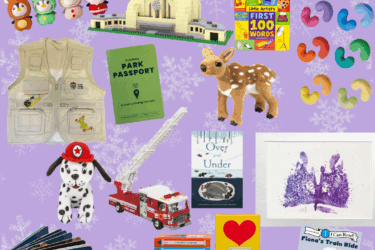Many couples plan for the wedding, but not for the marriage. A similar situation often occurs when expectant parents anticipate their baby’s arrival. They plan for labor and delivery, but don’t consider the difficulties of the postpartum months.
I made the same mistake. I bought all of the nursery supplies and had my hospital bag packed weeks in advance. I thought I was prepared. Boy, was I wrong! I neglected to plan for my postpartum needs and was overwhelmed by how hard a time it was. Don’t do what I did. Plan for those early months with your baby and you’ll be a less stressed-out parent for it.
Beware Sleep Deprivation
Feeding and caring for a newborn is an around-the-clock job. Newborns eat every two to three hours, yet adults need a seven to nine hour stretch of sleep to function well. Night after night of broken sleep will wear out the most energetic parent. Sleep deprivation increases your levels of cortisol – a stress hormone. This leads to feelings of hopelessness and a shorter fuse. “Get rid of all romantic notions,” says Denise Williams, a mother of two. “Lack of sleep made me sub-human and irrational in all other areas of my life.”
The old advice of sleeping whenever the baby does is crucial. Although you may have a hundred things to do, your body needs to rest to make up for the lack of sleep. This is especially important for the new mom’s recovery from childbirth. Don’t hesitate to ask others to come over and watch the baby so you can nap.
Learn methods to soothe a crying baby. In his book, The Happiest Baby on the Block: The New Way to Calm Crying and Help Your Baby Sleep Longer (Bantam) author Harvey Karp outlines the five S’s method for calming a baby. In order the steps are: Swaddle the baby, hold him in a Side or Stomach lying position, Shush loudly in his ear, Swing him from side to side and then give him something to Suck on. It really works. Other things to try: wearing your baby in a sling, rocking your baby, taking him for a walk or a car ride, and playing music.
Once your baby can take a bottle, let someone other than Mom handle some nighttime feedings. Start looking for ways that each parent can get at least a five hour chunk of sleep – the amount required to get your body into a restful state. Maybe you and your partner can split the night in half. Some couples even trade off whole nights. Sure, when it’s your night it’s exhausting, but at least you know that half of the time you will get a full night’s sleep. That’s more than most parents of newborns get! For more information on sleep, go to www.sleepnet.com.
Household Management
Do as much as you can in advance of the birth to free up your household duties. Freeze meals – casseroles are good. Other easy meals are salads, soups, sandwiches, or even pancakes for dinner. Also, have local grocery and restaurant delivery phone numbers handy.
Stock your home with nonperishables. You don’t want to be running to the store two days postpartum for toilet paper. Paper plates, cups and plastic utensils will give you a break from dishwashing for awhile, too.
Lower your housecleaning standards big time during postpartum. Meg North, a mother of one says, “I wish I had asked friends to stay with me to help and stopped worrying about how my house looked.” Rest and time to get to know your baby should be the priorities, not cleaning.
Look for ways to simplify household chores before the baby arrives. Clean out clutter – it’s just more things to dust. Organize your house so items are near where you use them. Use a laundry basket system that allows you to sort dirty clothes right when you take them off. For example, in my house each bedroom has one basket for darks and one for lights. Wash baby clothes in advance (they can contain chemicals that irritate baby’s skin), but don’t wash everything. You probably have more infant clothes than your baby will ever wear, so set some of them aside to exchange later for bigger clothes or a store credit.
Set up diaper changing and baby feeding areas on every floor of your house so you’re not running up and down the stairs all day. Some nice items for a feeding area are: burp cloths, a water bottle, a breastfeeding pillow for nursing moms, books, a journal – whatever will comfort the parents when they are feeding the baby.
All the Guests
Spread out your visitors as much as possible. Maybe Dad is home for two weeks and then, after that, grandma comes. Plan for four to six weeks of hands-on help if possible. You might want to hire a postpartum doula who will help care for the baby and Mom, do household chores, answer questions about breastfeeding and even run errands. It’s OK to set a time limit on visits or say that you won’t be having visitors at all until after a certain number of weeks. Answering the door in your bathrobe also gets the message across quickly that you’re too tired for socializing. This is your postpartum experience, so do what’s best for your family.
Putting Together Your Plan
In her book, Mothering the New Mother (Newmarket Press), author Sally Placksin includes a list of phone numbers to have on hand postpartum. A lactation consultant, new parents’ support group, housecleaner and the numbers of friends and neighbors who have offered to help can be included on your list.
Be prepared when someone offers support. This is not a time to turn away assistance. Maybe they would like to help with laundry, care for the baby, grocery shop or watch older siblings. If you have a friend who is great at organizing, you can even have her arrange your help.
Think about all of the groups you are involved with – places of worship, coworkers, sports teams – and let people know you’d appreciate whatever help they are comfortable providing.
Along with baby items, ask for gifts that will support the new parents. A meal for your freezer, a gift certificate for housecleaning or a postpartum massage make wonderful presents. Some expectant parents ask for donations to a doula fund. Also, check with your employer and health insurance about postpartum benefits they provide. They may pay for a doula, visiting nurse or other types of support.
Plan Ahead for a “Babymoon”
Having a postpartum plan in place can bring relief to what can be a stressful time. As Jennifer DeLugach, a mother of one, says, “My husband and I put together a postpartum plan similar to a birth plan where we arranged for the help we would need.” The result? “We had a wonderful babymoon!”
Melanie Bowden is a mother and freelance writer.





